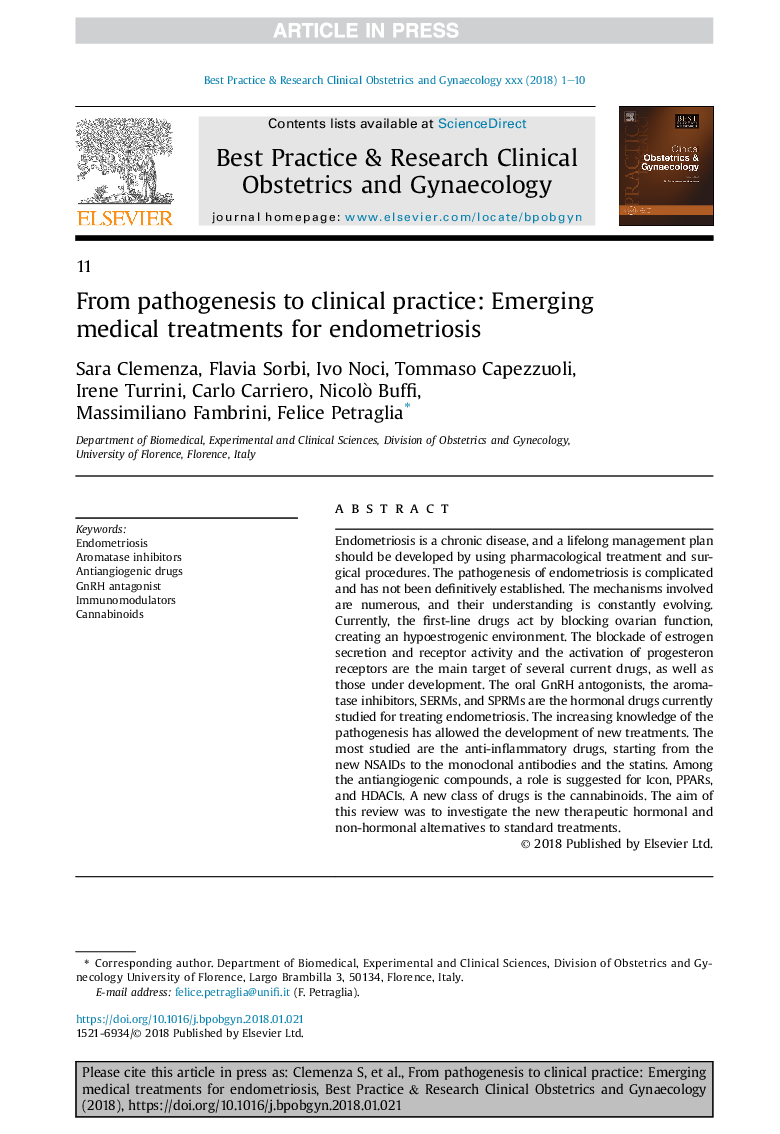| Article ID | Journal | Published Year | Pages | File Type |
|---|---|---|---|---|
| 11018193 | Best Practice & Research Clinical Obstetrics & Gynaecology | 2018 | 10 Pages |
Abstract
Endometriosis is a chronic disease, and a lifelong management plan should be developed by using pharmacological treatment and surgical procedures. The pathogenesis of endometriosis is complicated and has not been definitively established. The mechanisms involved are numerous, and their understanding is constantly evolving. Currently, the first-line drugs act by blocking ovarian function, creating an hypoestrogenic environment. The blockade of estrogen secretion and receptor activity and the activation of progesteron receptors are the main target of several current drugs, as well as those under development. The oral GnRH antogonists, the aromatase inhibitors, SERMs, and SPRMs are the hormonal drugs currently studied for treating endometriosis. The increasing knowledge of the pathogenesis has allowed the development of new treatments. The most studied are the anti-inflammatory drugs, starting from the new NSAIDs to the monoclonal antibodies and the statins. Among the antiangiogenic compounds, a role is suggested for Icon, PPARs, and HDACIs. A new class of drugs is the cannabinoids. The aim of this review was to investigate the new therapeutic hormonal and non-hormonal alternatives to standard treatments.
Keywords
Related Topics
Health Sciences
Medicine and Dentistry
Obstetrics, Gynecology and Women's Health
Authors
Sara Clemenza, Flavia Sorbi, Ivo Noci, Tommaso Capezzuoli, Irene Turrini, Carlo Carriero, Nicolò Buffi, Massimiliano Fambrini, Felice Petraglia,
